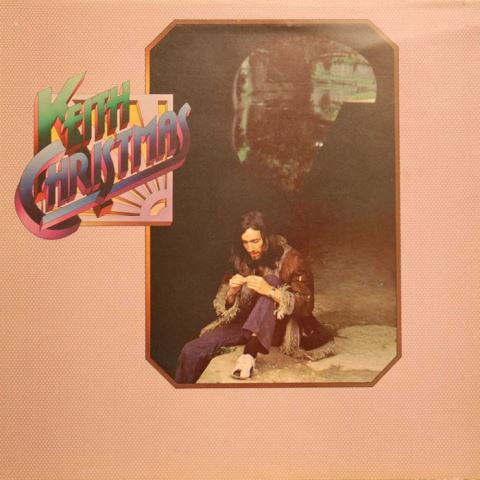The similarity is intentional. The cover design of When the Day is Done – The Orchestrations of Robert Kirby nods explicitly to that of Nick Drake’s debut album Five Leaves Left. That wasn’t just the first record by the singer-songwriter, it was also first time most people heard Kirby’s string arrangements. He and Drake had been friends at Cambridge University. The album’s producer Joe Boyd commissioned arrangements by Richard Hewson but Drake rejected them and the call was made to Kirby, who had already worked with him live.
For Kirby, this was the beginning of a career which flourished until the late 1980s, when his last credits included arrangements for Any Trouble, Elvis Costello and Nick Lowe after which he began a career in market research. He did, though, return to music in the late 1990s, initially with the twilight-toned Irish band Catchers. He died in 2009.
 When the Day is Done tracks Kirby from 1970 to 1978 through 20 frequently extraordinary tracks. Drake is here with the all-instrumental "Introduction", which opened his second album Bryter Later. Appropriately, it is sequenced as Track One. Also heard are Steve Ashley, Vashti Bunyan, Shirley Collins, Sandy Denny, Spriguns and Richard & Linda Thompson. As well as working with British folk-rock’s prime movers, Kirby contributed to records by the compilation’s less categorisable Audience, John Cale, Dana Gillespie, Andy Roberts and Gary Shearston.
When the Day is Done tracks Kirby from 1970 to 1978 through 20 frequently extraordinary tracks. Drake is here with the all-instrumental "Introduction", which opened his second album Bryter Later. Appropriately, it is sequenced as Track One. Also heard are Steve Ashley, Vashti Bunyan, Shirley Collins, Sandy Denny, Spriguns and Richard & Linda Thompson. As well as working with British folk-rock’s prime movers, Kirby contributed to records by the compilation’s less categorisable Audience, John Cale, Dana Gillespie, Andy Roberts and Gary Shearston.
Assembled by Saint Etienne’s Bob Stanley with a keen ear towards what Kirby brought to each track, this overdue first-ever dedicated collection captures the essence of a very particular musical approach. Although Kirby produced Lynsey de Paul’s candyfloss-pop 1972 hit “Sugar Me” and played live with The Strawbs, his arrangements were, in Stanley’s words, “English and melancholic, closer to Vaughan Williams than Phil Spector [and] totemic of a post-‘60s, post-swinging England that wore a greatcoat and kicked up leaves…relaxed, familiar and entirely autumnal.” The chorister and rock ‘n’ roll fan realised strings could enhance pop when he heard The Beatles’ “She’s Leaving Home”. Strings were Kirby's main order of the day but his scores also incorporated the harp, Mellotron and woodwind.
With the arc of a proper album ensuring it has to be listened to overall, When the Day is Done nonetheless features tracks which, while being top-notch examples of British music from the Seventies, are stand-outs. John Cale is a viola player, producer and composer, so his choice of Kirby for the 1975 Helen of Troy album’s “I Keep a Close Watch” confirms Kirby’s status. Whatever Cale has said subsequently to disown the album, the performance is moody, with a dark melody and forceful delivery which perfectly balance against full but non-intrusive strings. Kirby had brought an added power.
 Then there is Andy Roberts' 1971 beautiful album track “I’ve Seen the Movie” which catalogues the end of a relationship. Quintessentially British in a Colin Blunstone way, this could be a mawkish drama-in-song but Kirby’s sinuous instrumentation weaves in and out of Roberts’ broken voice to intensify the poignancy. The same trademark swells and swirls colour Keith Christmas’s “Forest and the Shore” (1971), a fantastic seven-minute epic and stylistic cousin of Serge Gainsbourg’s Histoire de Melody Nelson, issued the same year.
Then there is Andy Roberts' 1971 beautiful album track “I’ve Seen the Movie” which catalogues the end of a relationship. Quintessentially British in a Colin Blunstone way, this could be a mawkish drama-in-song but Kirby’s sinuous instrumentation weaves in and out of Roberts’ broken voice to intensify the poignancy. The same trademark swells and swirls colour Keith Christmas’s “Forest and the Shore” (1971), a fantastic seven-minute epic and stylistic cousin of Serge Gainsbourg’s Histoire de Melody Nelson, issued the same year.
In 1978, Illusion were a band out of time but their “Madonna Blue” is one of the most affecting total works of sound on When the Day is Done. The band hinged on former Yardbird Jim McCarty and were an outgrowth of the baroque folk-rock group Renaissance, which he had formed with fellow Yardbird Keith Relf. On 31 August 1977, they were headlining London’s Marquee. The next night, the stage was occupied by art-punks Gloria Mundi. After that, on 2 September, it was punks-as-such The Adverts. Despite the square-peg background, time has been kind to Illusion. Their “Madonna Blue” is a prog-tinged aural swoon in which the strings are integral to the overall mood and melody. At its core, the performance suggests a home-grown, pastoral British counterpart to the 1975 model of Fleetwood Mac.
When the Day is Done – The Orchestrations of Robert Kirby is essential. It explores British popular music from a new perspective. Which is rare. It sets Kirby in context and reveals his importance. No longer is he a figure in the shadows. Most importantly, it is a great listen.
- Next week: Albums two and three from Cocteau Twins – 1983's Head Over Heels and 1984's Treasure
- Read more reissue reviews on theartsdesk















Add comment